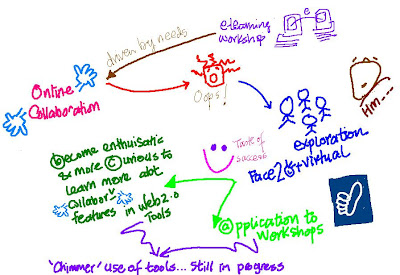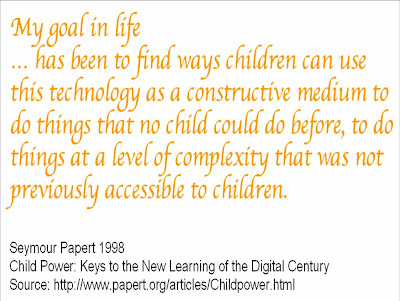
Sometimes, it's pretty interesting to hear from professionals from a diferent field... often, it offers a couple of useful triggers to our minds... to reflect/think through what we've been into most of the time...
Pleasantly surprised, Dr Liu's style of presentation was so 'similar' to those that we (have always been advised to) practise - Agenda and point by point.... so systematic and easy to follow :D hahaha... (wish that the set of slides is available to us...)
Here are some points that I managed to scribble...
(i) He started off presenting the background... the changes that Singapore has gone through over the years, from its humble beginning to progress and to the challenges we face today.
- Singapore has limited space: It has a small population though... It has no hinterland (true! where got extra land? almost every inch has been used...)... It is a single city country... and for survival, we compete internationally!
(ii) Singapor is high in the Global structure... as in the word "Singapore" is a brand name (Wah! It's the rubber stamp of quality... True true... that's why am wary the need to fly the Singapore flag well when overseas... people have certain expectation when they know we are from Singapore!)... Singaporeans are well-respected... and we have the ability to achieve beyond limitations so far...
(iii) To push the boundary will mean... having to work on 2 types of spaces - Physical as well as mental spaces. Physcial boundaries is obvious.... (we can expand our venture from nearby countries to teh various continents)... the least manageable one is the psychological aspect - having a realistic perspective... and that comes with 'digested and processed knowledge and experiences' from travels, arts, etc...
(iv) Culture is a rather 'individual' thing... one's personal upbringing matters! One's exposure to art, etc.. plays a part in it...
2 things...
(a) From a golden cage to a wild jungle
That somehow describes the mentality (and behaviour) of the generation(s) we have now in our society... which is a result of our high efficiency and productivity... when we found "the formula" and stopped thinking beyond... to some extent being complacent with what we have... of course, the 2nd half of the line is really a test to us... to survive in an unprotected environment, especially when competiting with the rest of the world... the mindset and behaviour others... So, has our system done us unjustice?
(b) Ruleless Competition with Integrity
That brings our another point - our integrity... and accountability, social responsibility - are we equipped with the set of desired values that enable us to compete with the world out there without comprising integrity?
New things I hear...
Gallup Path (Jim Clifton)
Click
HERE to read more about "Gallup Path"
Illustrating Singapore's situation in a
Gallup Path...

Efficiency leads to mutation of system... when people ust behave like "a creature of the system" (equivalent to a mindless part of a big machine)... one works more for rule and less (or rather) for purpose of goodness.
Hobson's ChoiceClick HERE to
read what's Hobson's choice
He reiterated that, for survival, there is no choice but to face the fierce global competition - and he stressed that
Arts & Culture cultivates that kind of passion desired in the new environment.
How it works...Arts & Culture > Imagination > Passion > Can do > Innovation > Economics
He reminded all that...
Look Not at others' Weaknesses but StrengthsInnovation = Science & Technology + Design & Art
Other points...
- Education as Catalyst: Not only aim high, but be aware of the weak segment
- Character: Inner strength, mental stamina, will power
- Competency: Employment readiness, intellectual depth
- Creativity: Curious, Critical; Imaginative, passionate
Creative Education Approach
- Maths: Logical Thinking
- Humanities: Expands minds and experiences
- Art: Creativity & imagination
- Sports: Competitiveness & team spirit
While we can buy technology, arts & culture needs to be home grown (which has to be uniquely Singapore - that's our identity).





















